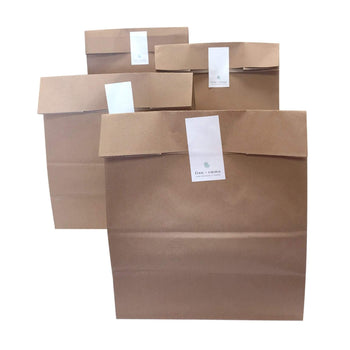3 Developmental Milestones for Children that All Parents Should Know About
Developmental milestones are physical and behavioral benchmarks children are expected to meet at certain stages of growth. These behavioral milestones may develop over time as they are the building blocks for continued growth in the child’s life. The milestones expected differ based on various age groups while focusing on literacy development.

Parents tend to need clarification on what developmental stages they should look out for in their children. Understanding these stages will enable the parents to monitor their child's developmental stage. The following are some of the developmental milestones of each age range in children:
Newborn
There are a lot of developmental milestones that occur during the first year of your baby's life. During your baby's second month, you should already start noticing some emotional and social skills. These skills may include reacting to external stimuli like loud sounds and watching your movement.
Other skills you may notice during the second month are head movements up during tummy time, movements of the arms and legs, and brief opening of the hands. At this stage, the baby is engaging with the environment and things happening around it while the neck muscles grow stronger.
At four months, your baby becomes more curious and social while moving more purposefully. By this time, the baby babbles, copies movements, and mimics sounds heard. Also, the baby will communicate and express feelings of hunger or frustration more by crying.
At six months, the baby meets some cognitive skills such as thinking and learning. There is also the development of some communication skills as the baby starts making squealing noises, sticking its tongue out, and blowing.
At 9 months, the baby makes more sounds like "mamamama" and "babababa" and also lifts their arms when picked. The baby also has more cognitive skills, like banging things together. There will also be some physical development, like sitting without support and moving things with hands.
Toddler Stage (1 to 3 years)
By the time the baby reaches this stage, there is more physical development. The child can now pull up to stand and follow simple directions. There is more emotional development, such as clapping when excited, showing you objects, and affection. The child will also reach more language milestones by pointing to ask for things and looking at familiar objects when you name them.
When the toddler is 2 years old, there is more awareness, as the child can now notice when others are hurt or sad. There will be more movements and pointing as the child looks at your face to see your reactions. At this age, the child also runs around and plays with more than one toy at a time.
Preschool (3 - 5 years)
Your 3-year-old is now more independent and can walk and wear some clothes on his own without support. Here, the child becomes aware of some dangers and avoids touching hot objects. The child is also more socially aware and can talk little enough for others to understand.
At 4, your child is now imaginative and energetic and has started preschool. Here, they like to tell more stories and may have imaginary friends. They are also very curious at this age and ask lots of questions. All these developments will inch them closer to understanding the time to begin kindergarten. Some of the other milestones your child may reach this age are:
- Learn the alphabet song
- Repeats stories
- Have conversations
- Say full name and age
When your child is 5 years old, it is time for kindergarten! The child may already know how to count to 10 or the alphabet song. At this age, your child is more curious and can tell the difference between reality and imagination. There is more interaction with peers at this age as your child becomes increasingly independent.
Final Thoughts
Developmental milestones are vital markers a child is expected to achieve during the growth stages from infancy to childhood. These milestones can be grouped into fine motor, social, cognitive, and language skills while also focusing on literacy development. They help inform parents on what to look out for during their children's growth stages.

















